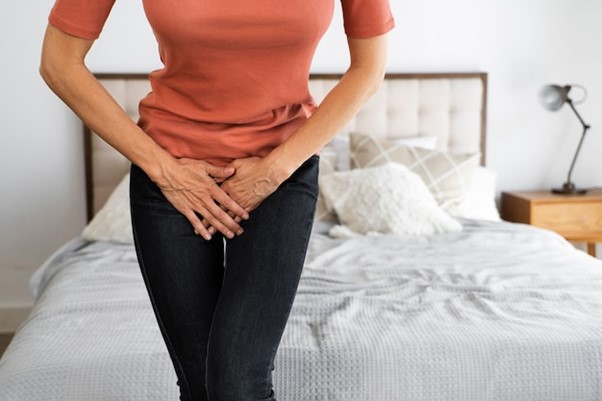Unexpected Symptoms And Things About Appendicitis You Need To Know
Evolution of laparoscopic surgical equipment to aid faster surgery with better outcomes
August 4, 2022Inguinal Hernia Surgery – Post-Op Care Tips
August 31, 2022
An appendix is a small vestigial tube at the junction of the small and large intestines. It is unknown if it has any crucial functions in humans, but one hypothesis is that it houses and nurtures healthy gut flora that can replenish the digestive system.
The appendix can irritate, swell, and become infected in some people causing appendicitis. A ruptured appendix causes excruciating pain and discomfort, and an inflamed appendix can further cause recurrent pain.
In addition, if an appendix ruptures, bacteria can spread throughout the abdomen, infecting the patient. This condition requires immediate medical attention. The good news is that a skilled gastrointestinal surgeon in Mumbai can promptly perform surgery to treat appendicitis.
Dr. Harsh Sheth is one of the best laparoscopic gastrointestinal and bariatric surgeon in Mumbai. He is well-versed in the medical and surgical management of gastrointestinal disorders. He specializes in performing minimally invasive GI surgeries and various basic and advanced procedures.
Moreover, Dr. Harsh Sheth is well-known for his expertise in advanced gastrointestinal surgeries and bariatric surgery in Mumbai. He is dedicated to providing patients with the best care possible using evidence-based protocols at a reasonable price.
This article will overview appendicitis, its symptoms, causes, diagnosis, and treatment options.
So, let’s have an,
Overview of Appendicitis

As you know, the appendix is an organ in the body. When this organ becomes infected, appendicitis occurs, and it is almost certainly removed. However, you might not need to get rid of it entirely.
Every time a patient had appendicitis, the doctors operated on and removed it because they believed it to be a crucial organ. However, this is untrue.
According to recent studies, the appendix does have a purpose. Repopulating your body with necessary bacteria is beneficial. It functions as a sort of bacterial warehouse and can replenish the body when necessary.
The appendix is present at the end of the colon. It most likely blocks at one of its ends when it is infected. Usually, poop cause this block (besides other reasons). A healthy diet can prevent this because poop is what clogs it up in the first place.
Now, let’s see,
Symptoms of Appendicitis
Several appendicitis symptoms that you might not be aware of include: lower abdominal pain that
- starts on the right side and then shifts to the left
- sudden navel pain that gradually spreads to the lower right abdomen
- pain that gets worse when coughing, moving, or making other jarring movements

- abdominal bloating
- severe nausea and vomiting
- reduced appetite
- mild fever that could eventually worsen
- rare instance of constipation or diarrhoea
Causes of Appendicitis
A variety of things can bring on appendicitis. The exact cause is often unclear. Several of the potential causes include:
- body waste or growth that is stiffened and can block the appendix’s opening
- infection of the digestive tract with different pathogens, such as viruses, bacteria, or parasites
- blocked faeces in the tube connecting the appendix and the large intestine
- gastrointestinal conditions like Irritable Bowel Syndrome (IBS)
When should you consult a gastroenterologist?
- Appendicitis is a potentially fatal condition that needs to be treated right away. It gets worse the longer it goes untreated. Indigestion might initially appear to be the first signs and symptoms.
Any sudden or severe stomach pain is cause for concern, so if you experience
- any of the symptoms mentioned above, seek immediate medical attention.
- To stop the spread of the condition and additional complications, appendicitis should be treated as soon as symptoms appear.
How is appendicitis diagnosed?
Your doctor will ask about your symptoms during the examination. To determine whether applying pressure makes the pain worse, the doctor may do so.
The doctor may order tests if they suspect appendicitis but does not observe the typical signs and symptoms.
Common diagnostic tests and procedures may include:
- Blood tests to rule out infection.
- MRI, CT, or ultrasound scans to determine whether the appendix is inflamed.
- Urine tests to rule out kidney or bladder infections.
In some cases, this may be sufficient to treat appendicitis, negating the need for surgery. However, the appendix must typically be removed surgically.
A thorough diagnosis will be made by the doctor based on the symptoms you have described.
What are the treatment options for appendicitis?
Once the diagnosis is complete and it has been determined that surgery is necessary, the course of action will be planned.
An appendectomy typically lasts an hour to complete.
Possible appendicitis surgery options include:
- Laparoscopy: With this method, there is a small incision, minimal bleeding, and minor scarring. Recovery happens more quickly than it would with open surgery.

- Open surgery: In some cases, a larger incision will be needed to clean the abdominal cavity inside and out.
Make sure you consult one of the best gastrointestinal surgeon in your area who specializes in carrying out the surgery.
Always carefully evaluate abdominal pain before assuming that a stomach bug is a cause. Appendicitis can be treated with just antibiotics if it is discovered in time.
Increase intake of fibres to keep your colon clean and avoid appendix inflammation. You are now aware that the quicker the waste leaves your body, the healthier and less susceptible to appendicitis you are!




